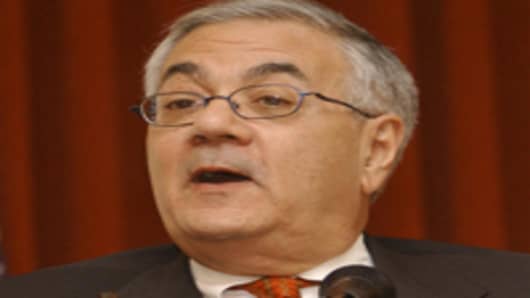"Perhaps most importantly, the American public has the right to know what enforcement actions are contemplated against those irresponsible and, in some cases, criminal actions that lead to the current situation," he said.
(See video for full CNBC interview with Frank)
At a House financial services subcommittee hearing on Thursday, Wall Street groups agreed there should be one one risk regulator but were split on who should have that role.
The Financial Services Roundtable, which represents the largest financial services firms, advocates giving the Fed the responsibility for looking across the entire financial system and identifying risks.
But the Securities Industry and Financial Markets Association, said it has not decided whether the Fed should play that role.
The National Association of Insurance Commissioners, a collection of state regulators, oppose the creation of one super regulator.
And some key lawmakers have reservations giving the Fed more powers, citing potential conflicts with the board's current responsibilities of setting monetary policy and supervising banks.
"Are any of you troubled with giving the Fed so much power?" asked Alabama Rep Spencer Bachus, the top Republican on the full House Financial Services committee.
Lawmakers at the subcommittee hearing also expressed reservations about rushing ahead with a plan to create a systemic risk regulator.
"We have to get this one right. We can't just hurry to expeditiously conclude something that appears to be a fix, when it does not accomplish something of a significant nature," said Pennsylvania Rep Paul Kanjorski, the Democratic chairman of the House subcommittee on capital markets and insurance.



